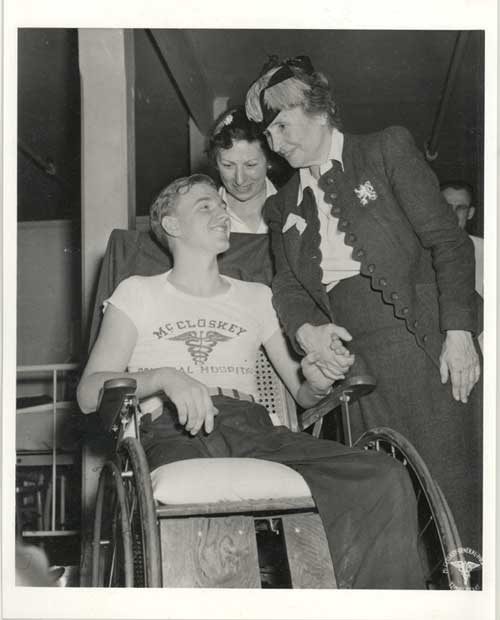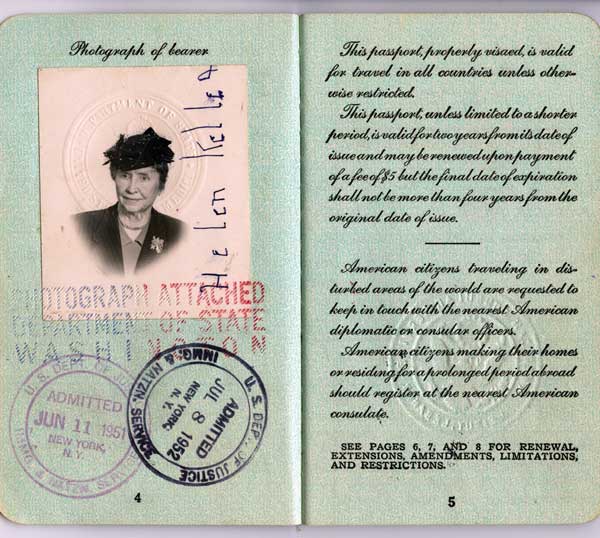AFB's digitized archive will be accessible to everyone, everywhere.
No one would be more proud of AFB's Helen Keller Archive than Helen Keller herself. It's not about the vast collection of letters, photographs, and artifacts, including gifts from dignitaries of the 49 countries she visited during her lifetime. It's because AFB is using technology to create a fully accessible digital archive — the first of its kind, says Helen Selsdon, AFB's archivist.
"This collection is for everybody, which is exactly as Helen would have wanted it," Selsdon says of the archive that's accessible to people who are blind, visually impaired, or deaf. "She'd just be cross we didn't get there sooner."
The archive, which contains 80,000 items, preserves Keller's legacy. She's known for being a successful woman who was blind and deaf, but not everyone knows how groundbreaking her advocacy for people with disabilities was — and continues to be.
Digitizing the Helen Keller Archive has been a multi-year project that received a major boost in 2015, with funding from the National Endowment for the Humanities. More recently, American Express made a generous $100,000 donation that will help AFB complete the digitization by the end of 2017 and promote the archive to a widespread audience.
The archives feature numerous references to American Express, which coordinated much of Keller's extensive travels. Keller's travel schedules, along with her writings and other memorabilia, help tell the story of a tireless activist.
"She was a very hard-working woman who spent decades fighting for those with vision loss," Selsdon says. "She was absolutely determined to change the way people perceived her — and others who can't see and hear — and she did that."
Selsdon, who was recently honored by The Archivists Roundtable of Metropolitan New York with the 2017 award for Innovative Use of Archives, says it's difficult to choose a single favorite artifact. One item she finds particularly extraordinary is the open letter Keller wrote to the student body of Germany in 1933, when her book How I Became a Socialist was placed on a list of degenerate books to be burned in Berlin.
The AFB team in charge of the archive project presented their strategy for archival accessibility to the Society of American Archivists in July, where it was received with great interest.
"The collection is a brilliant tool for changing the technology of what is delivered," Selsdon says. "And Helen's story can move the needle on people's attitudes about those with disabilities — she's a perfect figurehead for what we're trying to do at AFB."

